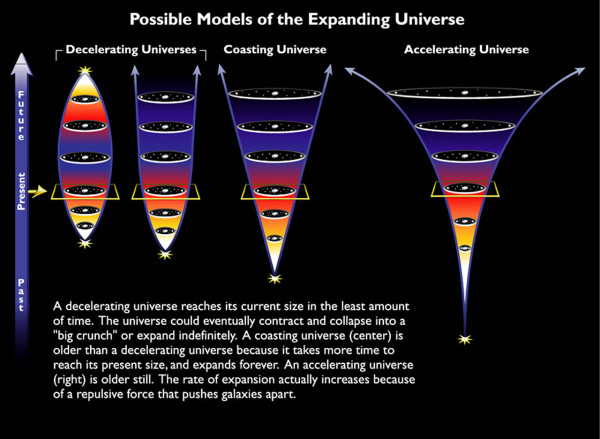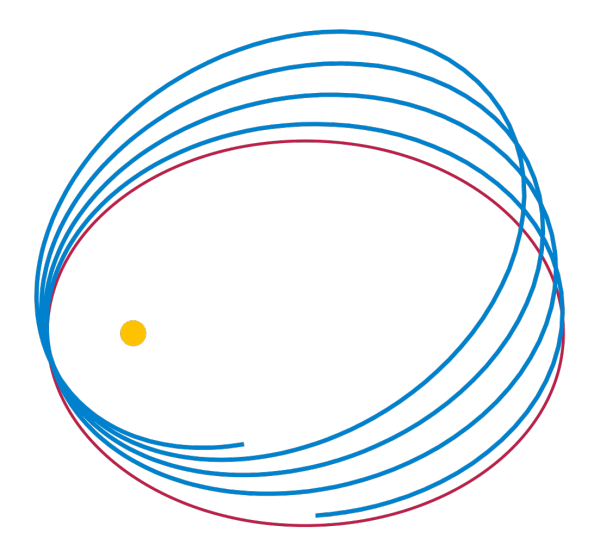"There are still so many questions to answer. When you look at any part of the universe, you have to feel humbled." -Saul Perlmutter
Discovered in 1998 from the observation of distant supernovae, dark energy determines the eventual fate of the Universe, leading to a "Big Freeze" scenario, where all the galaxies, groups and clusters that are presently gravitationally unbound from one another will eventually recede away until they're unreachable.
 Image credit: NASA & ESA, via http://www.spacetelescope.org/images/opo9919k/.
Image credit: NASA & ESA, via http://www.spacetelescope.org/images/opo9919k/.
But if dark energy truly permeates all of space as a cosmological constant, it should have effects, albeit small ones, on the Solar System itself. In principle, simply measuring the orbits of the bodies in our Solar System precisely enough should allow us to determine whether dark energy truly is a cosmological constant, and what its effects on the planets are.
Go read the whole story (and the latest research) over on Forbes!


maybe now that we're starting to think everything is entanglement we might find another explanation for whatever leaves us no option but to posit dark energy.
maybe Einstein was not just wrong about spooky action but about some other intrinsic aspect of reality
i just can't help often thinking that much of what we do right now is akin to Ptolemaic cycles within cycles - it's just that we can't see things any more clearly yet.
"maybe now that we’re starting to think everything is entanglement "
We don't.
@The Peak Oil : I think there is a way to understand dark energy. If you’ve ever watched the Discovery Channel you’ll have seen the balloon analogy. The expanding universe is likened to an inflating balloon in a vacuum. In a steady state the pressure inside the balloon is balanced by the tension in the skin. But imagine it's a bubble-gum balloon. There is no balance, the tensile strength reduces as the skin gets thinner and weaker, and less able to resist the pressure. So the balloon expands further and the tensile strength reduces as the skin gets thinner and weaker, and so on. Tension is negative pressure. Google on dark energy negative pressure.